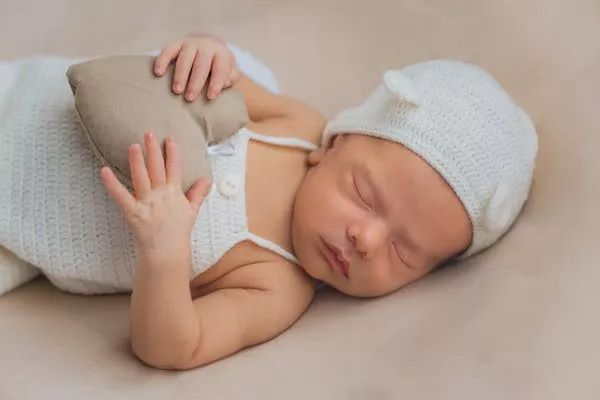1. Understanding Cradle Cap:
Before delving into how often you should wash cradle cap, it’s important to understand what cradle cap is. Cradle cap, also known as infantile seborrheic dermatitis, is a common skin condition that affects infants. It presents as greasy, yellow or white scales or patches on a baby’s scalp. While it’s generally harmless and usually resolves on its own, many parents wonder about the best approach for keeping the affected area clean.
2. The Role of Washing in Cradle Cap Care:
Washing is a crucial part of managing cradle cap. It helps in two main ways:
Removing Excess Oil: Cradle cap is often caused by an overproduction of sebum (the skin’s natural oil). Regular washing helps remove excess oil, which can reduce the severity of cradle cap.
Loosening Scales: Gently washing the affected area can help soften and loosen the scales, making it easier to remove them without causing discomfort to your baby.
3. Frequency of Washing:
So, how often should you wash cradle cap? The answer can vary based on the severity of your baby’s condition and their individual skin type. Here’s a general guideline:
Mild Cases: If your baby has a mild case of cradle cap with minimal scaling and discomfort, you can start by washing their scalp once a week. Use a mild, hypoallergenic baby shampoo and be sure to rinse thoroughly to avoid any residue buildup.
Moderate Cases: For moderate cases with slightly more scaling, you may consider washing every other day. Again, choose a gentle baby shampoo, and be extra cautious during washing to avoid any irritation.
Severe Cases: In severe cases where the scales are thick and stubborn, you may need to wash your baby’s scalp daily. However, it’s essential to consult your pediatrician before adopting this approach. They can provide guidance on the best course of action and recommend specific products.
4. Precautions When Washing Cradle Cap:
When washing your baby’s cradle cap-affected scalp, there are some precautions to keep in mind:
Gentle Handling: Always be gentle. Use a soft baby brush or a fine-toothed comb to help remove scales after washing, but don’t apply excessive pressure to avoid causing discomfort or injuring the skin.
Avoid Harsh Products: Stick to baby-specific shampoos that are gentle on the skin and free from harsh chemicals. Avoid adult shampoos, as they can be too harsh for a baby’s delicate scalp.
Warm Water: Use lukewarm water for washing. Avoid hot water, as it can further irritate the skin.
5. Consultation with a Healthcare Professional:
If your baby’s cradle cap doesn’t improve with regular washing or if it worsens, it’s essential to consult with a pediatrician or dermatologist. They can assess the condition and may recommend specific medicated shampoos or treatments if necessary.
In conclusion, how often you should wash cradle cap depends on the severity of the condition. For mild cases, once a week may be sufficient, while moderate cases may require washing every other day. Severe cases should be discussed with a healthcare professional. Always prioritize gentle handling and the use of baby-specific products to ensure your baby’s comfort and skin health.
Remember, every baby is unique, and what works for one may not work for another. Be patient and consult with a healthcare expert for the best guidance on managing your baby’s cradle cap effectively and safely.
FAQs about how many times a week should you wash cradle cap
1. What is cradle cap?
Cradle cap, also known as infantile seborrheic dermatitis, is a common skin condition that affects infants. It appears as greasy, yellow or white scales or patches on a baby’s scalp.
2. Why is washing important for cradle cap?
Washing is crucial for cradle cap care as it helps remove excess oil and soften scales, making them easier to manage and reducing discomfort for your baby.
3. How often should I wash my baby’s scalp if they have cradle cap?
The frequency of washing can vary based on the severity of your baby’s condition:
For mild cases, washing once a week is often sufficient.
Moderate cases may benefit from washing every other day.
Severe cases may require daily washing, but it’s crucial to consult a healthcare professional before adopting this approach.
4. Can I use regular adult shampoo on my baby’s cradle cap?
It’s not recommended to use adult shampoos on your baby’s cradle cap. They can be too harsh for a baby’s delicate scalp. Opt for gentle, baby-specific shampoos.
5. Should I use hot or cold water for washing cradle cap?
Use lukewarm water for washing your baby’s scalp. Hot water can be too harsh and may further irritate the skin.
6. What precautions should I take when washing cradle cap?
Be gentle when washing and avoid applying excessive pressure to prevent discomfort or skin damage. Use a soft baby brush or fine-toothed comb to help remove scales after washing.
7. Can I use moisturizers or oils alongside washing to treat cradle cap?
Yes, you can use a gentle baby moisturizer or natural oil like coconut oil to help soften scales and moisturize the affected area after washing. However, consult with your pediatrician before using any products.
8. When should I consult a healthcare professional about my baby’s cradle cap?
If your baby’s cradle cap doesn’t improve with regular washing or worsens, it’s essential to consult with a pediatrician or dermatologist. They can provide specialized guidance and recommend specific treatments if necessary.
9. Is cradle cap a cause for concern?
Cradle cap is generally not a cause for concern. It’s a common, harmless condition that usually resolves on its own. However, if you have any concerns or if the condition persists, consulting a healthcare professional is advisable.
10. Are there any home remedies besides washing for cradle cap?
Besides washing, some parents find success with natural remedies like applying coconut oil or using a humidifier in the baby’s room to increase moisture levels. Always consult with a healthcare professional before trying any home remedies.


